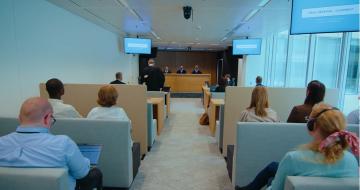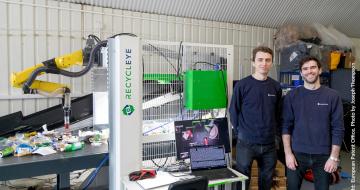Table of Contents
Private copies are authorised
Any reproduction or copy of a work may only be made with the authorisation of the persons who have rights to this work (authors, performers and producers, or the persons or organisations that manage rights to the work).
However, under certain conditions, copies made for private purposes may be made without authorisation. Under this exception to copyright and related rights, it is authorised to make copies of a CD (or part of a CD), for example, to put it on an MP3 player or tablet, or a CD borrowed from a media library, or a film that is broadcast on television for viewing at a later time. The same applies to photocopies of an article or part of a book made for strictly private purposes. Photocopies of an article or part of a book made by a person in the course of their professional activities are also authorised by copyright law under another exception: the reprography exception.
The conditions for private copying
Please note that in order for private copying to remain legal, a number of conditions must be met. In the event of non-compliance with any of these conditions, there is infringement of copyright and related rights. To be on the safe side, it is advisable to consult a specialist, if you wish to ensure that you are not infringing copyright by making a copy.
Private use
Copies may only be made by a natural person for private use. This means that the copy made cannot be used for commercial purposes.
Films, music, literary works and photos
Movies or music can be copied in their entirety. This can be done on any analogue or digital media such as CDs, DVDs, computers, external hard disks, USB keys, MP3 players, tablets, etc.
Since 1 December 2013, it is also authorised to copy articles, books or photos on these media.
Downloads and peer-to-peer networks
Making a private copy from an illegal source is not allowed. The European Court of Justice clarified this in a judgement of 10 April 2014. An unauthorized source is understood to mean a source that infringes the rights of the authors or neighboring rightholders. Copying a work over a P2P network, even for personal use, will often constitute a copy from an illegal source, and is, therefore, not authorised by law.
Photocopies and prints made for strictly private purposes
Since 10 March 2017, photocopies and prints made by a natural person for private use are also authorised under the exception for private copying. Previously, photocopies were covered by the reprography exception. This was changed as a result of a judgment of the Court of Justice of the European Union.
Remuneration for private copying
In order to compensate for this exception, the law provides for remuneration for authors, performers and producers. Since 1 September 2019, publishers also receive a compensation for this exception, separate from that reserved for authors, performers and producers.
This remuneration for private copying, the amounts of which are fixed by royal decree, is collected by the collecting society Auvibel. Auvibel then divides the collected compensation among the different categories of rightholders.
Conditions for reprography
Reprography for professional activities
The law also authorises the reproduction of works, via photocopying, when the copy is made by a person in the course of his professional activities. Firstly, articles and works of visual or graphic art may be photocopied in whole or in part. Secondly, only excerpts from other works can be photocopied and not, for example, an entire book. Copies of sheet music are also excluded.
Internal use
The photocopy must be intended for internal use in a company or association or for professional purposes.
For example
This exception for reprography covers, for example, photocopies made for professional purposes in a library, in copy shops, in a public administration, or photocopies made in a company for its internal needs.
Remuneration for reprography
To compensate for this exception, the law provides for remuneration for authors and publishers of copied works.
This remuneration for reprography, the amounts of which are fixed by royal decree, is collected by the collecting society Reprobel. Reprobel then divides the collected remuneration among the different categories of rightholders.


